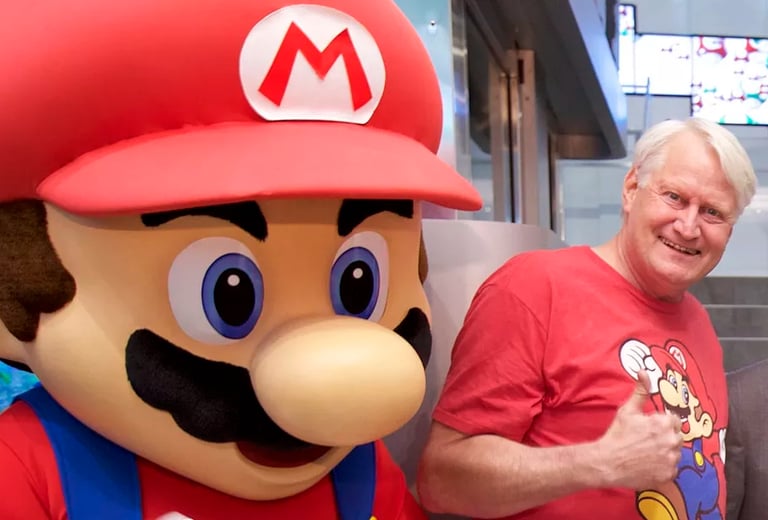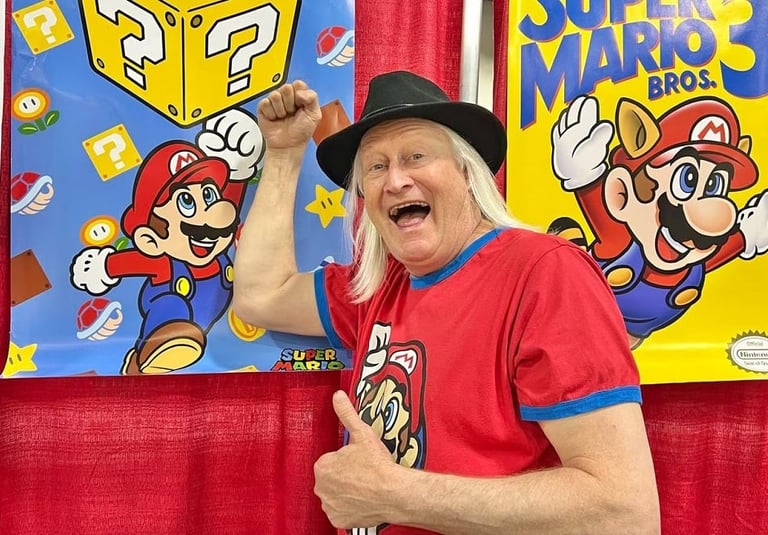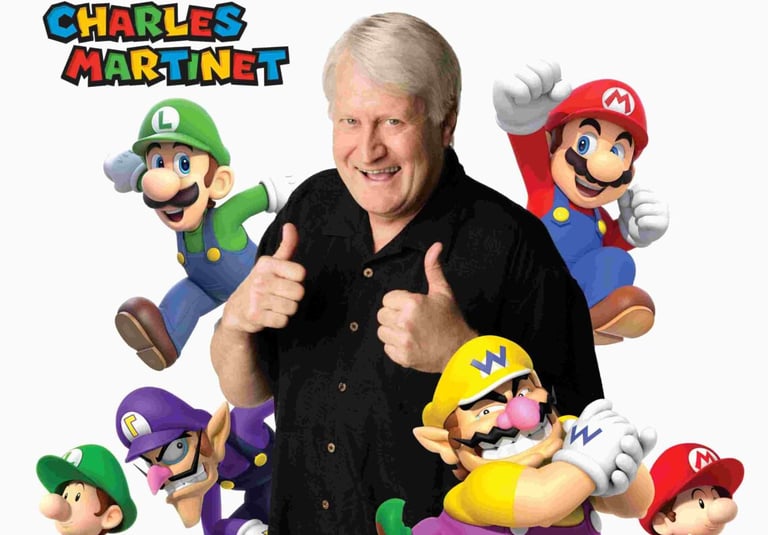Charles Martinet vs. Super Mario: Why Did Nintendo Drop the Storied Voice Actor?
For nearly 29 years, Charles Martinet had provided Nintendo's Super Mario with his iconic voice. All the "wahoos" and "mama mias" came courtesy of the actor's style and invention. In a very real sense, Martinet was Mario; he'd become the face of the world-recognized star. And that, perhaps, was exactly the problem. In 2023, the company "retired" Martinet in favor of an unknown performer with little experience...leaving fans sad and plenty baffled. Why did Nintendo drop its long-running celebrity? Pride, jealousy...and money.
D
4/2/20243 min read


Mel Blanc. Frank Welker. John DiMaggio. They’re individuals of a thousand voices, a thousand souls—singular personalities capable of spawning a thousand more. Each is a menagerie of faces, a book of recipes…the lifeblood behind a canon of famous creations. They’re voice actors, in short, who’ve brought both meaning and feeling to their respective characters—a dynamic breath to an otherwise static cast of drawings. There is no Bugs Bunny without Mel Blanc. No Scooby-Doo team without Frank Welker. No Bender the Robot without John DiMaggio.
But voice acting extends beyond cartoons and animated features; anything not live-action naturally requires a voice to rise beyond the façade. Jim Henson had to employ a host of performers to meld with his Muppets, Fraggles, and other fantastical creations. The animatronics seen at Chuck E. Cheese and numerous amusement parks need an accompanying actor to provide a voice and, really, a soul. And commercials, especially, are built on voice work, from the lively Toucan Sam to the Aflac Duck. The actor doesn’t need to be seen, only believed.
It’s strange, then, that video games, themselves requiring a huge body of voice work, are rarely held with the same honor or distinction as their animated counterparts. Master Chief, Solid Snake, Lara Croft, Arthur Morgan, Sonic the Hedgehog…these are characters made memorable, in part, by the actors speaking through them, becoming one with them, turning what are just concoctions of polygons into seemingly real beings addressing the player. But these performers, unlike Mel Blanc, are hardly household names. They’re rarely mentioned, rarely praised…and some, as in Sonic’s case, are often interchangeable, with one actor swapped for another every few years without explanation.
There are some exceptions, of course. Hence the aforementioned Charles Martinet, who up until recently was the shrill, obnoxious voice for Super Mario. After almost thirty years in the role, the actor had become almost as iconic as the plumber himself. He even did the voices for Mario’s brother Luigi and rival Wario. And yet, for no seeming reason, Nintendo decided to pull the stopper out on the actor in 2023. Charles Martinet has been “retired” from the role he helped establish, if not outright defined, for decades.
So why did Nintendo drop Martinet? It’s a good question without a good answer—but it does align with the treatment the typical video game performer generally receives. No role is sacred—no actor too important—to escape being someday replaced. It also happens in animation; Matthew Lillard, the current voice for Scooby-Doo’s Shaggy, was still barred from participating in the big-budget theatrical production of Scoob! Why? Again…reasons.
But, in Martinet’s case, the ultimate cause might be Nintendo’s own Super Mario Bros. Movie, where the titular character is played by actor Chris Pratt. If Mario wasn’t world-recognized already, he certainly was after his movie commanded almost 1.4 billion dollars in global box office receipts. In a sense, Mario had outgrown video games. And definitely, Mario had outgrown Martinet. Did the Big N really want its beloved mascot to remain so betrothed to the 68-year-old American actor? To be the face of a character meant to be as fluid and versatile and marketable as possible? Martinet, in his way, was Mario…and by extension was stealing the icon’s limelight. And Nintendo couldn’t have that. He’s just a voice actor doing silly quips. And Mario, well, he’s a multi-billion-dollar property. Icon. Legend.
So Martinet, like so many game actors, eventually got the axe, er…hammer. At least Nintendo, probably fearing the wrath of fans, gave the man a gracious exit, coining him “Mario Ambassador,” whatever that’s supposed to mean. It’s not unlike what happens when Disney recognizes a celebrity it no longer deems viable—the actor in question receives a polite sendoff and becomes a “Disney Legend.” Martinet’s replacement, a man named Kevin Afghani, is almost a virtual unknown actor by comparison. And that’s exactly how Nintendo wants it.
Some actors become bigger than the stars they play. But in Nintendo’s World, there is no actor or countervailing personality. Only Mario.
And really, only Nintendo.




Martinet became so associated with Mario, he kinda was Mario...and Nintendo wasn't going to have that.
Martinet has voiced more than just Mario, as this photo shows.
Who's the bigger face in video games?
Thanks to viaxesports.com, caknowledge.com, and nintendohall.it for the images.
Contact: lostnostalgiaproductions@gmail.com
Website: www.lostnostalgia.com
Like what we're doing? Please consider throwing us a dollar into our Patreon page's tip jar!


